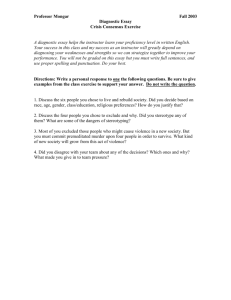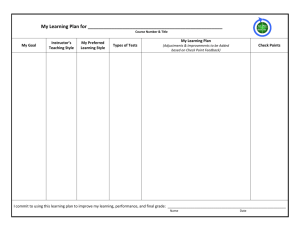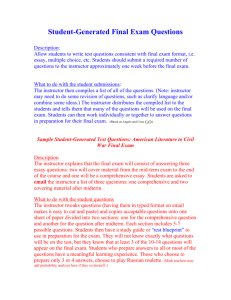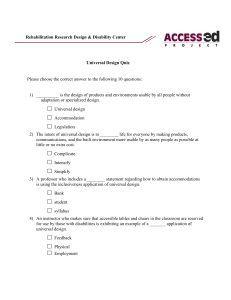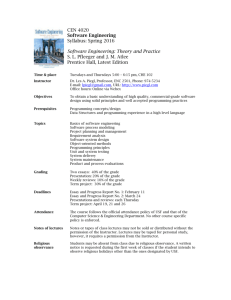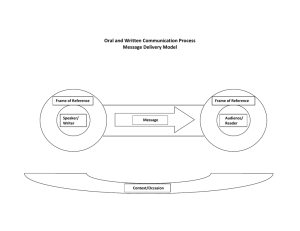ACCT 522: Seminar: Current Topics in Financial Reporting
advertisement
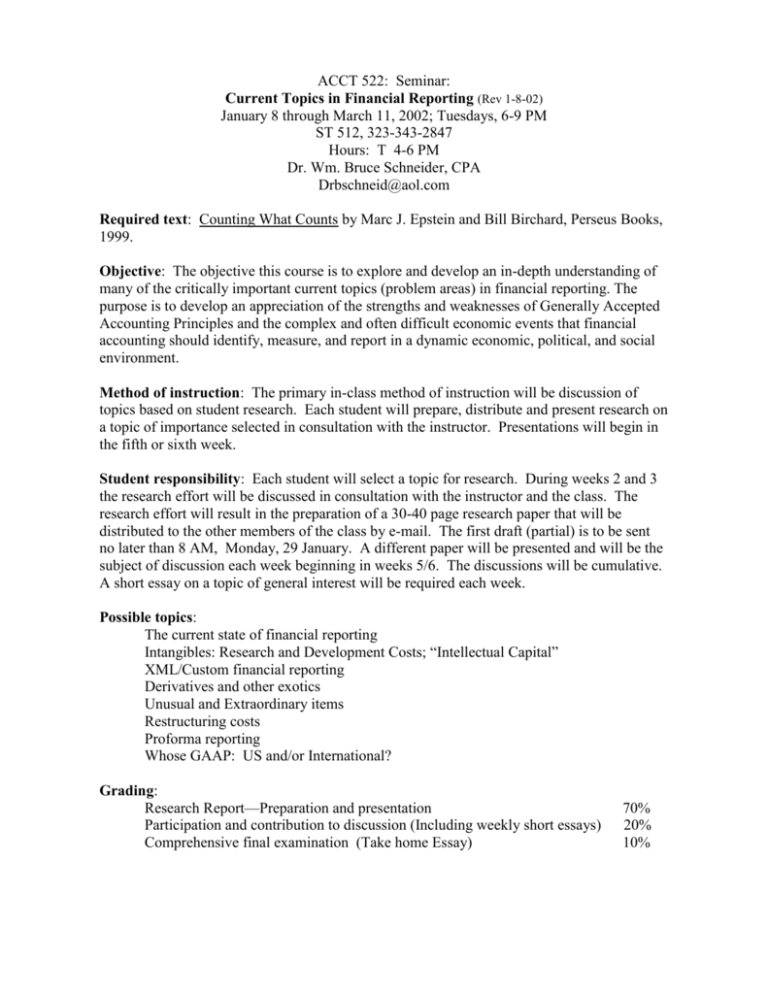
ACCT 522: Seminar: Current Topics in Financial Reporting (Rev 1-8-02) January 8 through March 11, 2002; Tuesdays, 6-9 PM ST 512, 323-343-2847 Hours: T 4-6 PM Dr. Wm. Bruce Schneider, CPA Drbschneid@aol.com Required text: Counting What Counts by Marc J. Epstein and Bill Birchard, Perseus Books, 1999. Objective: The objective this course is to explore and develop an in-depth understanding of many of the critically important current topics (problem areas) in financial reporting. The purpose is to develop an appreciation of the strengths and weaknesses of Generally Accepted Accounting Principles and the complex and often difficult economic events that financial accounting should identify, measure, and report in a dynamic economic, political, and social environment. Method of instruction: The primary in-class method of instruction will be discussion of topics based on student research. Each student will prepare, distribute and present research on a topic of importance selected in consultation with the instructor. Presentations will begin in the fifth or sixth week. Student responsibility: Each student will select a topic for research. During weeks 2 and 3 the research effort will be discussed in consultation with the instructor and the class. The research effort will result in the preparation of a 30-40 page research paper that will be distributed to the other members of the class by e-mail. The first draft (partial) is to be sent no later than 8 AM, Monday, 29 January. A different paper will be presented and will be the subject of discussion each week beginning in weeks 5/6. The discussions will be cumulative. A short essay on a topic of general interest will be required each week. Possible topics: The current state of financial reporting Intangibles: Research and Development Costs; “Intellectual Capital” XML/Custom financial reporting Derivatives and other exotics Unusual and Extraordinary items Restructuring costs Proforma reporting Whose GAAP: US and/or International? Grading: Research Report—Preparation and presentation Participation and contribution to discussion (Including weekly short essays) Comprehensive final examination (Take home Essay) 70% 20% 10% The Research Paper General Structure Chapter 1—Introduction Chapter 2—Review of Literature and Outline of Methodology Chapters 3 (+)—Discussion and development Final chapter—Summary and conclusions 1.1 1.2 1.3 1.4 1.5 1.6 1.7 Chapter 1—Introduction (details) (Proposal) Statement of problem (25 words or less) Background (1 page) Importance of research (1/2 page) General questions to be explored (1/2 page) Summary of basic literature (provides outline of methodology) (1 page) Limitations (Time is not one of them.) (1/4 page) Structure of the paper (1/2 page). Identify the chapter subject. The proposal is to be available for review and discussion at the beginning of class in week 2. The first draft of the paper is to be available for review and discussion at the beginning of class in week 4. The proposal and first draft are to be sent to me by e-mail at least one day prior to the scheduled class. Web sites of interest (just the tip of the iceberg)You are strongly encouraged to identify and share other sites with the class.) Sec.gov FASB.org Aicpa.org Rutgers.edu/Accounting/raw/ January 22: Guest speaker: Professor John Rodi will speak on “Enron—The accounting and professional problems” January 29 or February 5: Guest speaker: Ms. Shirin Noghreian, EY, “Impairment of Value related to Goodwill and other assets” Other: For all matters not directly addressed by this syllabus, Accounting Department, College of Business and Economics, and University policies and procedures apply. Your attention is especially directed to the University policies on cheating, plagiarism, and intellectual honesty and integrity. It is the student’ responsibility to communicate with the instructor in the event of absence from class to inform and be informed at the e-mail address above..

